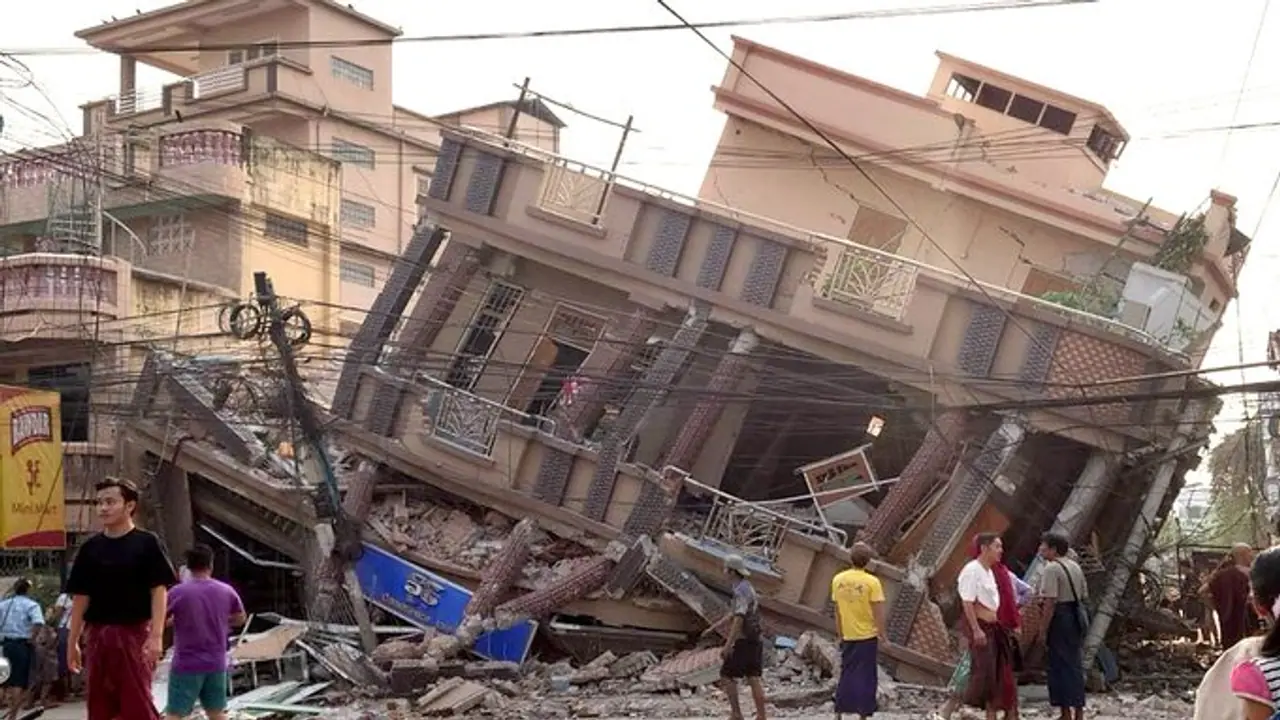Myanmar’s military junta reportedly continues airstrikes despite a deadly earthquake, drawing global condemnation for obstructing rescue efforts and humanitarian aid.
Myanmar’s military junta has come under severe criticism for continuing airstrikes in war-torn regions of the country even after a devastating earthquake killed more than 1,600 people. The United Nations has described the attacks as "completely outrageous and unacceptable."

UN Special Rapporteur Tom Andrews was quoted in a BBC report stating that it was "nothing short of incredible" that the military was still "dropping bombs when you are trying to rescue people" in the aftermath of the natural disaster. He urged the regime, which seized power in a coup nearly four years ago, to halt all military operations.
"Anyone who has influence on the military needs to step up the pressure and make it very clear that this is not acceptable," Andrews stated. "I'm calling upon the junta to just stop, stop any of its military operations."
Air Strikes Amid Rescue Efforts
The bombing campaign continued shortly after the earthquake struck. According to the report, seven people were killed in an air strike in Naungcho, northern Shan state, at around 15:30 local time—less than three hours after the quake. Pro-democracy rebel groups reported aerial bombings in Chang-U township in northwestern Sagaing, the epicenter of the earthquake, as well as in areas near the Thai border.
The National Unity Government (NUG), which represents the ousted civilian administration, responded by declaring a two-week pause in "offensive military operations, except for defensive actions" in earthquake-affected areas starting Sunday.
The 7.7-magnitude quake, which struck Sagaing, was felt across neighboring countries and caused widespread destruction in Myanmar’s second-largest city, Mandalay, and the capital, Nay Pyi Taw, located over 150 miles (241km) away. The junta has reported 1,644 deaths, with many more believed to be trapped under the rubble.
Civil War and Junta’s Military Strategy
The devastating earthquake adds to the turmoil of a country already grappling with four years of civil war since the military coup of 2021. What started as mass protests against the coup evolved into an armed insurgency led by pro-democracy forces and ethnic rebel groups, escalating into a full-scale civil war.
Facing consistent territorial losses and humiliating defeats, the junta has increasingly relied on air power to subdue resistance. According to the BBC report, the military now controls less than a quarter of Myanmar. Ethnic armies and resistance groups reportedly control 42% of the land, with the rest being contested territories.
The military's air superiority remains its key advantage, as resistance forces lack the capability to counter aerial attacks. The junta has a history of indiscriminate air strikes targeting civilian structures, including schools, churches, and hospitals. One of the deadliest attacks killed over 170 people, including many women and children.
The UN body investigating human rights violations in Myanmar has accused the junta of committing war crimes and crimes against humanity against its own people.
Role of Russia and China
The military’s ability to sustain aerial warfare is largely attributed to ongoing support from Russia and China. Despite repeated UN calls for an arms embargo, both nations have supplied the junta with advanced attack jets and provided training. Ironically, both Russia and China have now sent aid and rescue teams to Myanmar in the wake of the earthquake.
However, UK-based Burmese rights activist Julie Khine questioned their motives. "It's hard to trust the sympathy now when they're also the same countries supplying the military junta with deadly weapons used to kill our innocent civilians," she said.
Fears of Aid Manipulation
There is also widespread concern that the military will use humanitarian aid as a tool in the civil war. Myanmar's military has a history of denying aid to regions controlled by resistance forces, a pattern that has raised alarms within the international community.
UN’s Tom Andrews warned that in previous disasters, the junta had blocked aid and arrested aid workers. "What we know from past humanitarian disasters is that the junta does not reveal the truth. It also has a habit of blocking humanitarian aid from getting to where it is most needed," he was quoted as saying in the BBC report.
"They weaponize this aid. They send it to those areas that they have control of and deny it to areas that they do not. So you have areas with the most acute needs, and aid is literally blocked, trucks stopped, people arrested—that has been their pattern of response to natural disasters. I'm afraid I'm fully expecting that that will be the case with this disaster."
As Myanmar reels from both the destruction of a powerful earthquake and the continued air strikes from the junta, international pressure is mounting for the military to cease hostilities and allow humanitarian relief to reach all affected communities.
Also read: Myanmar earthquake death toll rises to 1,644, over 3,400 injured, says military council
